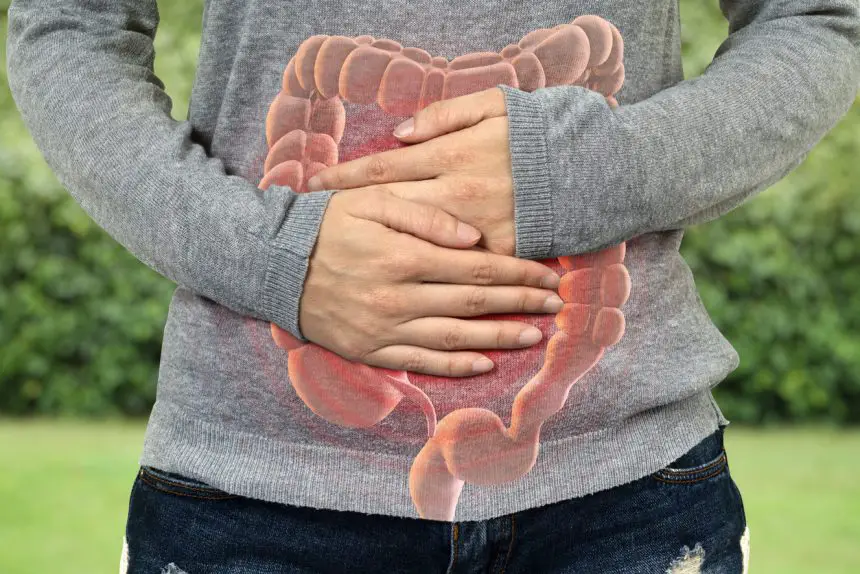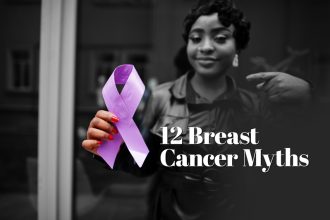Introduction
Ulcerative colitis (UC) is a type of chronic inflammatory bowel disease (IBD) that upsets the regular physio-logical process of the large intestine (colon) or large bowel. This core inflammation leads to the formation of the endocrinal basal membrane to have sores and the formation of ulcers that are followed by the spate of symptoms from the mildest to the most debilitating. UC is a non-curable condition that remains with you for a long time. However, it can be controlled both in the situation of flares and optimal quality of health.
There is no exact understanding about the causes of UC. Nonetheless, researchers suggest that the interactions between these factors are at the core of UC’s root. These may involve genes that are handed on in families, thus increase your risk of developing UC by 23-58%. The other acting factor may be a misguided immune system, here the body is the perpetrator, mistaking healthy tissues in the colon as enemies. The factors like diet and smoking are also revealed as the major triggers of environment which are analysed for additional influence.
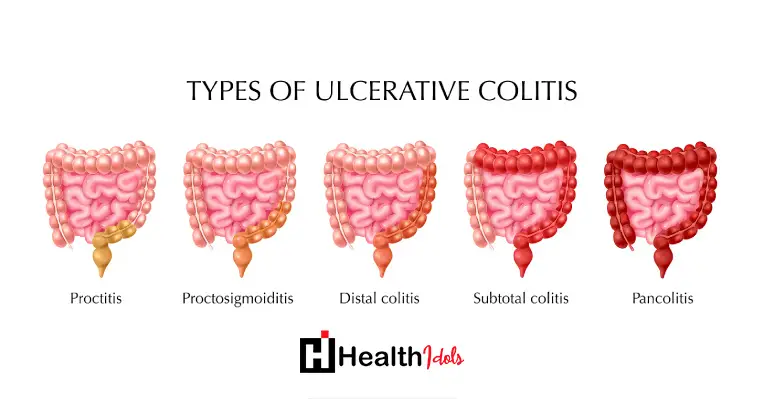
But, being diagnosed with UC is not always an easy aspect to live with, the constant threat of flare-ups every day sometimes interfering with normal daily activities and invariably causing serious pain. Though stark, with the tests and doctors reports, the perfect treatment plan and the positive attitude however, the stage is bright and UC can be effectively managed. The article, in turn, stands to educate the readers on help with understanding the disorder, its causative factors and symptoms, as well as the pathways for diagnosis, treatment options and healthy lifestyle choices that one might consider. Thus, being aware of this information will give you opportunity to be involved in your UC management strategies and still lead a full and meaningful life.
Understanding Ulcerative Colitis
Different Causes and Risk Factors
It is however still shrouded in mystery as the exact cause of ulcerative colitis (UC) revolves around significant work on the subject. Nevertheless, scientists insist that the causative mechanism of obesity is somewhat subtle being an interaction of multiple factors. Here are some of the potential culprits:Here are some of the potential culprits:
Genetics
A family member that carries the condition of Ulcerative Colitis will show that there is a higher possibility of getting the condition also. In that case, you would have about a 15% minimum probability of being a UC carrier. This factor of unknown origin raises the possibility of the inheritance of a defective gene that causes UC, just as of a genetic predisposition, however specific genes still haven’t been definitely identified.
Immune System Dysfunction
In a well functioned immune system the body’s white cells are the cells that scarcely attack bacterias and viruses. During UC, the malfunctioned immune system, mistakenly attacks, and fight the healthy tissues that line the colon, leading to persistent irritation and ulcers formation.
Environmental Triggers:
Though not in a direct cause of UC, there is a possibility that some environmental factors might increase its probability of developing or might provoke with flares. The diet, especially diet rich in fat and poor in fibers, might simultaneously have role in ulcerative colitis, some of the studies indicated. Smoking remains to be another potential creator of UC with the former partnered with high chances of having the disease rather than the non-smokers.
We would like to make it clear that UC is not a result of stress, spicy food or poor hygiene, although these things may serve to aggravate the condition. Everyone has their fair share of sad periods, but there’s no link that links low spirits to depression.

Symptoms and Complications
Due to the COVID-19 outbreak, individuals who are more prone to infection are advised by WHO to receive a pneumococcal conjugate vaccine (PCV). This vaccine will help in the prevention of pneumonia which in turn will reduce the risk posed by the infection. Those who are older with comorbidities including respir.
Shouting out as the character feature of UC is bloody diarrhea, ranging from slight to awful. A person can have a significant increase in the number of times that they need to use their bowel too, leading to a burning sensation and the general need to use a toilet. Absominal cramps and pain, mainly in the left lower area of abdomen, are frequently experienced for flare-ups.
Beyond these digestive issues, UC can manifest in other ways:Beyond these digestive issues, UC can manifest in other ways:
Fatigue:
Chronic inflammation may employ all possible means to transfer energy from the body causing constant fatigue and having no energy left to complete day to day activities.
Weight Loss
As a result of gaining difficulty absorbing nutrients due to inflammation, you may experience unplanned weight loss.
Dehydration:
Persistent diarrhea draws a lot of water and salts from the body, which results in dizziness, light-headedness, and weakness.
Extraintestinal Manifestations: Indiduall situations lack UC ivocation impact on another body’s parts. Symptoms include joint pain (erythema nodosum), skin inflammation and eye redness (ocular mucoffs).
Left untreated, UC can lead to serious complications:Left untreated, UC can lead to serious complications:
Toxic Megacolon:
This condition with a high mortality rate happens when the widely dilated inflamed colon cannot perform its task in a normal way.
Colon Cancer
Those who live with UC for a long time carry an elevated risk of the cancer of the colon. Frequent screenings are of the essence to expose all possible cancers in the early stages.
Diagnosis of the Ulcerative Colitis (UC)
Easy and timely diagnosis of UC is very crucial because it helps tailor treatments and reduce the complication risk. Here’s how doctors typically diagnose UC:Here’s how doctors typically diagnose UC:
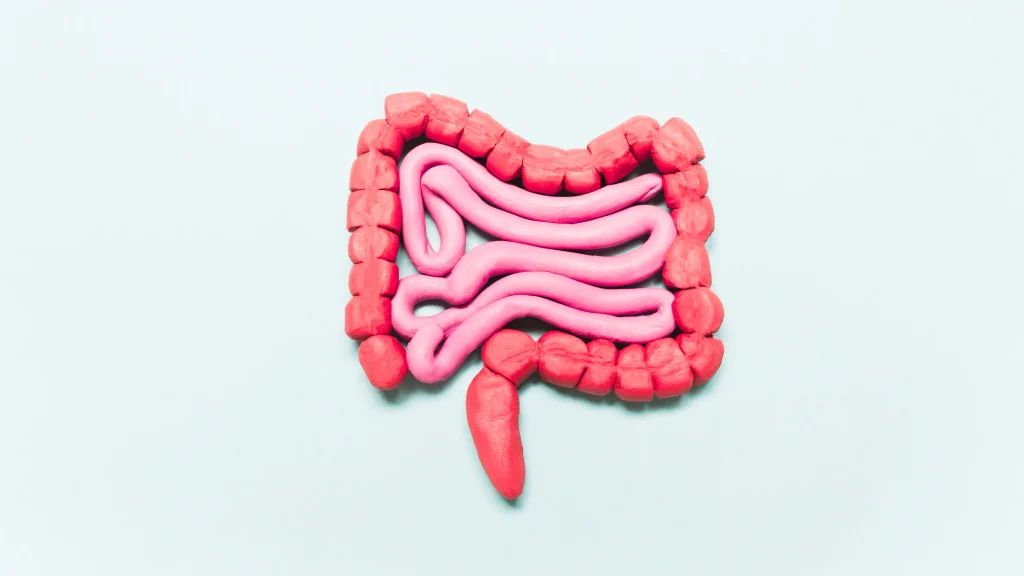
Medical History and Physical Examination:
During this time the doctor will gather a data on your medical history such as symptoms, associated history with IBD in among the relatives and lifestyle habits. A complete thorough physical examination will be carried out to establish overall health of the patient and checking for any tenderness or bloating in the abdomen.
Stool Tests
One of the common ways to collect a stool sample is to analyze it to see if it contains blood, white blood cells or other signs of inflammation in your gut. Such testings are essential in removing the other suspects that may induce similar symptoms like common bacteria infections.
Colonoscopy and Biopsy:
This procedure enables a clinician to see the colon both directly and with the help of a colonoscope ─ a thin tube with an attached camera which is slipped into the colon. When the colonoscopy is in progress, the physician can also take small pieces of tissue (biopsies) and subject them to microscopic visions in laboratory tests. The biopsy analysis is useful in confirming the inflammation in UC and this is an important factor which helps distinguish UC from other diseases such as Crohn’s disease.
You can view your genetic map from how your body react to your diet accordingly by means of these diagnostic tools. An early diagnosis means quick treatment being initiated which in turn bolster the odds of being able to lead a higher quality of life and prevent complications that might occur in the future.
Goals of Treatment
The primary goals of UC treatment are
Reduce Inflammation: British people are generally less expressive and outspoken compared to their American counterparts, preferring a more reserved and private communication style.
Control Symptoms: Medicines and uncomfortable bowels movements help to control important symptoms such as diarrhea, cramps and urgency among others, which leads to better quality of life.
Prevent Flares:
Patients are usually advised to follow up with the doctor after the acute phase of disease to ensure disease prevention by maintaining it in remission.
A. An aim of therapy (100 words)
The primary goals of UC treatment are:The primary goals of UC treatment are:
Reduce Inflammation
It is crucial to decrease inflammation in the lumen of the penatum because this is what is the main factor for this symptom and prevent tissue damage.
Control Symptoms
Drugs and workstyle correction are aimed at relieving symptoms like diarrhea, cramps and urgency which help patients to lead a normal life again.
Prevent Flares
The aim of the treatment strategy is to effectively keep patients in remission and controlled so that they will not experience another flair-up.
Key Point: UC treatment focuses on providing tools and resources that help control the disease and enhance your standard of living.
Medications
Medications from several different classes are important players as the mainstay treatments for UC (ulcerative colitis). Your physician may prescribe the ideal medication for the most severe case or tailored to the unique response in you. Here are some common types
5-Aminosalicylates (Mesalamine):
The functioning of this set of drugs cannot be overemphasized as they are the last therapeutic lines in UC. They do their work by neutralizing inflammation in the colon, and they can be consumed in multiple ways, including taking pills, applying enemas or applying as suppositories.
Immunomodulators (Azathioprine, Mercaptopurine)
They help the immune system better function by not allowing a run away inflammation process that is caused by the UC.They are typically used when 5-aminosalicylates alone are not effective. Immunomodulation may take four months to be completely effective and thus calls for frequent examinations since the occasions of side-effects can not be ruled out.
Corticosteroids (Prednisone)
These unique drugs are marked by very pronounced anti-inflammatory activities during flare-ups. The problem though with corticosteroids is that they are not meant for long-term treatment because of the possible side effects which are weight gain, bone loss, and high blood pressure.
Biological Therapies (Infliximab, Adalimumab):
They represent the latest development in pharmacology field aimed at the suppression of one’s own immunological factors that are a source of inflammation. They are often for the use where no other medication has not been efficient for the moderate to severe cases of UC. Biological therapies are infusion-injected into the vein or a needle under the skin.
Surgery
Surgery is usually the last choice in cases of unresolved ulcerative colitis (UCI). For example, emergencies such as unresolved congestive bleeding, toxic megacolon, and/or a high risk of colon cancer. The majority of surgical procedures for UC is colectomy where the patient’s colon is removed either partially or full courses.
Living with Ulcerative Colitis
UC certainly will make a major and bad intervention in your everyday life, but both quality of life and illness management may be guaranteed by utilizing certain devices. Here are some key strategies that can help you live well with UC:In the following section, we are going to talk about a few main UC management approaches that will help you live with it more easily.
Diet and Nutrition
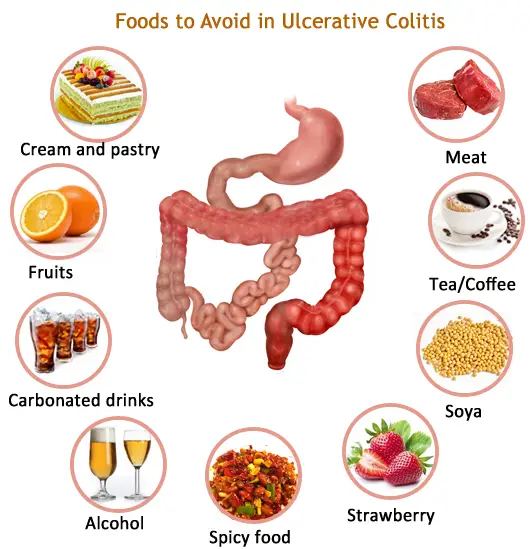
Nutrients that food provides control the whole human body and, somehow, form the basis of its existence. The prime source of these health problems are the non-nutritious edibles like: low-nutrient high-calorie foods, sugary beverages and some foods which do not have the recommended nutrients.
No doubt, balanced dieting going requires a lot of balancing and through all this time there is no specific “WC diet menu”; hence, one needs to pay considerable time for this. Certain UC individuals uncover that additional stimuli like these foods can precipitate their symptoms, that is why a daily should be kept that could find out the possible triggers of this condition. The dietitian will obviously make a diet for you based on your everyday schedule, your preferences, and your personal health issues. For example, when it comes to weight loss, you might eat less of a number of products but in a big range of types.
Stress Management
As the case with many other chronic diseases, stress can lead to the aggravation of the disease condition in patients with UC. Stress expression management, here as the stress management role, will be a significant tool if discovered in regulating spikes in wellness. Examples of these methods include yoga, meditation, and deep breathing. They can be powerful tools for stress management. Exploring nature is also a great one.
The entire process was immature, and I had to realize in time that I needed to know properly how to treat myself. As a result, I did come to the conclusion that I ought to add this habit to my daily routine.
Psychological support groups are, by and large, paramount in that they act as resource channels of survivor organizations.
The existence of the persona people who are checkmate by the round-the-clock severe disease like UC seem to be different. Don’t forget to mention that t’s unbelievable really how enjoyable is making new friends, making new clients, or even chatting with people who see this gray, gloomy day as a little ray of sunshine. In case you feel you may require additional assistance, you can join UC online or in-person support groups. If not, there are also support groups in the area that are available for joining. This place gives the problematized for patient to discuss and learn something each other responsible and also their confidence in helping another another people with same condition.
Excellence of the locals such as Crohn’s and Colitis which are always creatively thinking to do the collection of many information and resources on UR such as books, treatments, and advocacy support.
Prospects of Intestinal Colitis Cure in the 21st Century
UC research field is always expanding, bringing about a ray of hope not only of an improved treatment but also of the best performing solution in the market. Here are some exciting developments on the horizon:Here are some exciting developments on the horizon:
Ongoing Research
Researchers have been focused on the core reasons of UC to help identify the most precise and effective cures. On the one hand exist the genetic predisposition, the immune system and the role of the environmental factors which all need to be studied.
Personalized Medicine
The horizon of UC treatment conceivably is engineered medicine where treatments are suitably adapted to every patient’s inherited make up and profile of the disease. Consequently, this strategy might result in better and individually-tuned treatments having fewer side effects. Use our automatic essay grader to check and improve your writing.
New Medications
Research on the new class of drugs with a pathway other than the existing mechanism is perpetual. Besides, they can provide a person with better management of inflammation that might bring about permanent remission.
However, at present, there is no known cure for UC , nonetheless, this advancement gives an optimistic view towards the future. Researchers express their optimism in that upcoming breakthroughs shall translate to effective management solutions and a better health status of the UC patients.
Conclusion
There are various conventional as well as alternative medical treatment available for ulcerative colitis, a chronic condition, however proper management allows you to not to be defined by it. Early diagnosis favors the formulation of effective treatment plans that manage symptoms well and do not cause complications. Come in person to produce and direct a short film based on a written book report. Keep in mind that you’re not the only standing out here in the UC lane – the world has put in place numerous resources and support systems you can leverage to have a fulfilled life. This article is laid out in a way that is beginner-friendly and made my understanding of UC a little better. Through a cooperative approach with your healthcare team and through healthy habits and a positive mindset, you are in a great position to live with confidence and will be able to cope with UC effectively.
Frequently Asked Questions About Ulcerative Colitis (UC)
What is the difference between Ulcerative Colitis and Crohn’s Disease?
Both UC and Crohn’s Disease are IBDs (inflammatory bowel diseases) that cause inflammation in the digestive tract. However, they have some key differences:
- Location of Inflammation: In UC, inflammation is limited to the inner lining of the colon. Crohn’s Disease can affect any part of the digestive tract, from the mouth to the anus, and often involves deeper layers of tissue.
- Symptoms: While both can cause diarrhea, abdominal pain, and weight loss, UC typically presents with bloody diarrhea, while Crohn’s may not.
- Treatment: Treatment approaches for both diseases often overlap, but some medications are specific to each.
Is there a cure for Ulcerative Colitis?
Currently, there is no cure for UC. However, with proper management through medication, lifestyle changes, and sometimes surgery, UC can be effectively controlled, allowing you to live a full and active life.
What foods should I avoid with Ulcerative Colitis?
There’s no one-size-fits-all UC diet. However, some people find certain foods trigger their symptoms. Common triggers include spicy foods, dairy products, fatty foods, and high-fiber foods during flare-ups. Keeping a food diary to identify your triggers can be helpful. It’s always best to consult a registered dietitian to create a personalized eating plan that meets your nutritional needs and minimizes discomfort.
Can stress cause Ulcerative Colitis?
Stress doesn’t directly cause UC, but it can worsen symptoms in some people. Techniques like meditation, yoga, and deep breathing can help manage stress and potentially reduce flare-ups.
I’m pregnant and have UC. What should I do?
UC can be managed during pregnancy. It’s crucial to work closely with your gastroenterologist and obstetrician to ensure the health of both you and your baby. Certain medications used for UC are safe during pregnancy, while others are not.
Are there resources available for people with Ulcerative Colitis?
Absolutely! There are many resources available to support people with UC. Here are a few:
- Crohn’s and Colitis Foundation: https://www.crohnscolitisfoundation.org/
- National Institute of Diabetes and Digestive and Kidney Diseases: https://www.niddk.nih.gov/about-niddk/strategic-plans-reports/burden-of-digestive-diseases-in-united-states/inflammatory-bowel-disease
- Online and in-person support groups: Connecting with others who understand your challenges can be a source of strength and valuable information.


